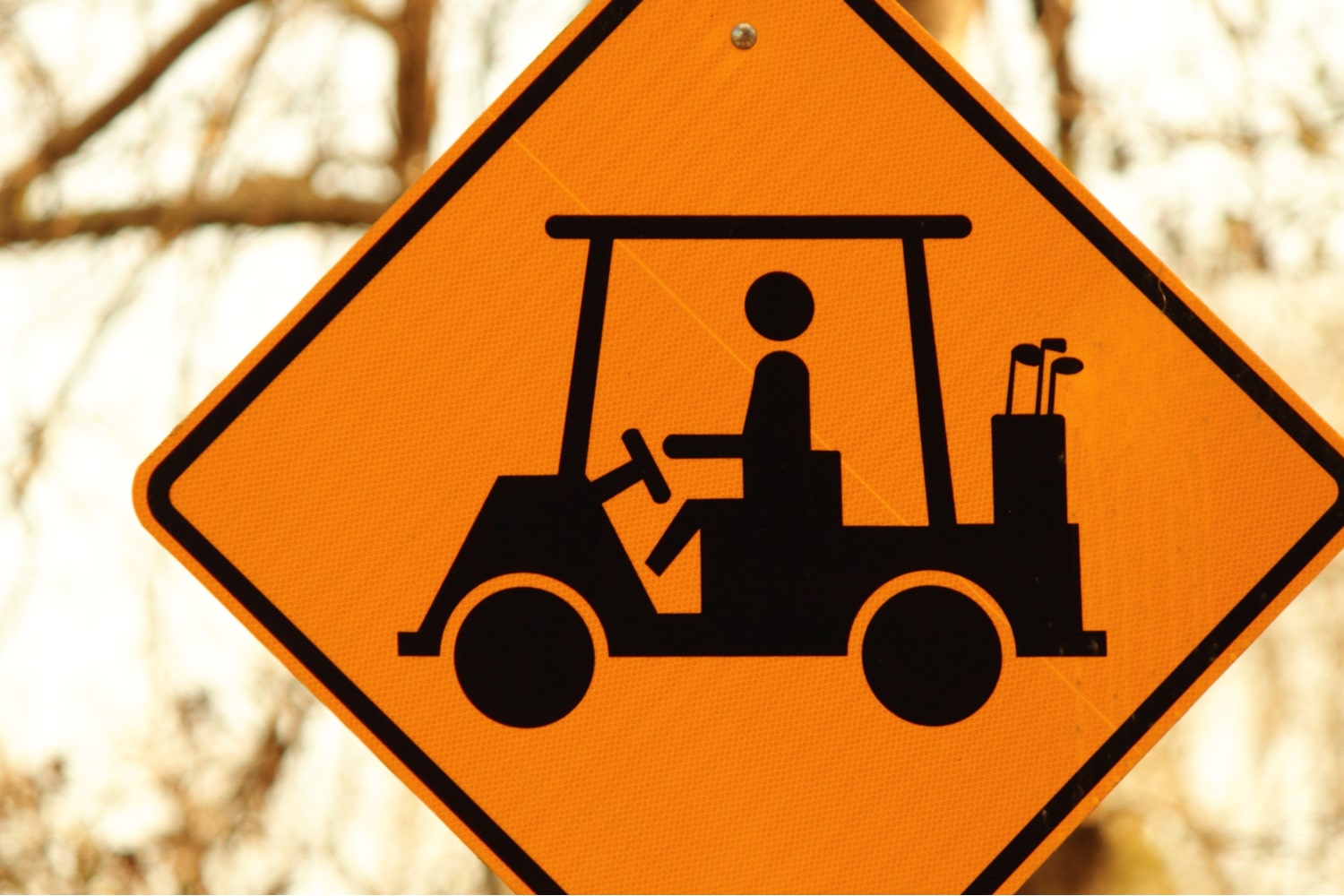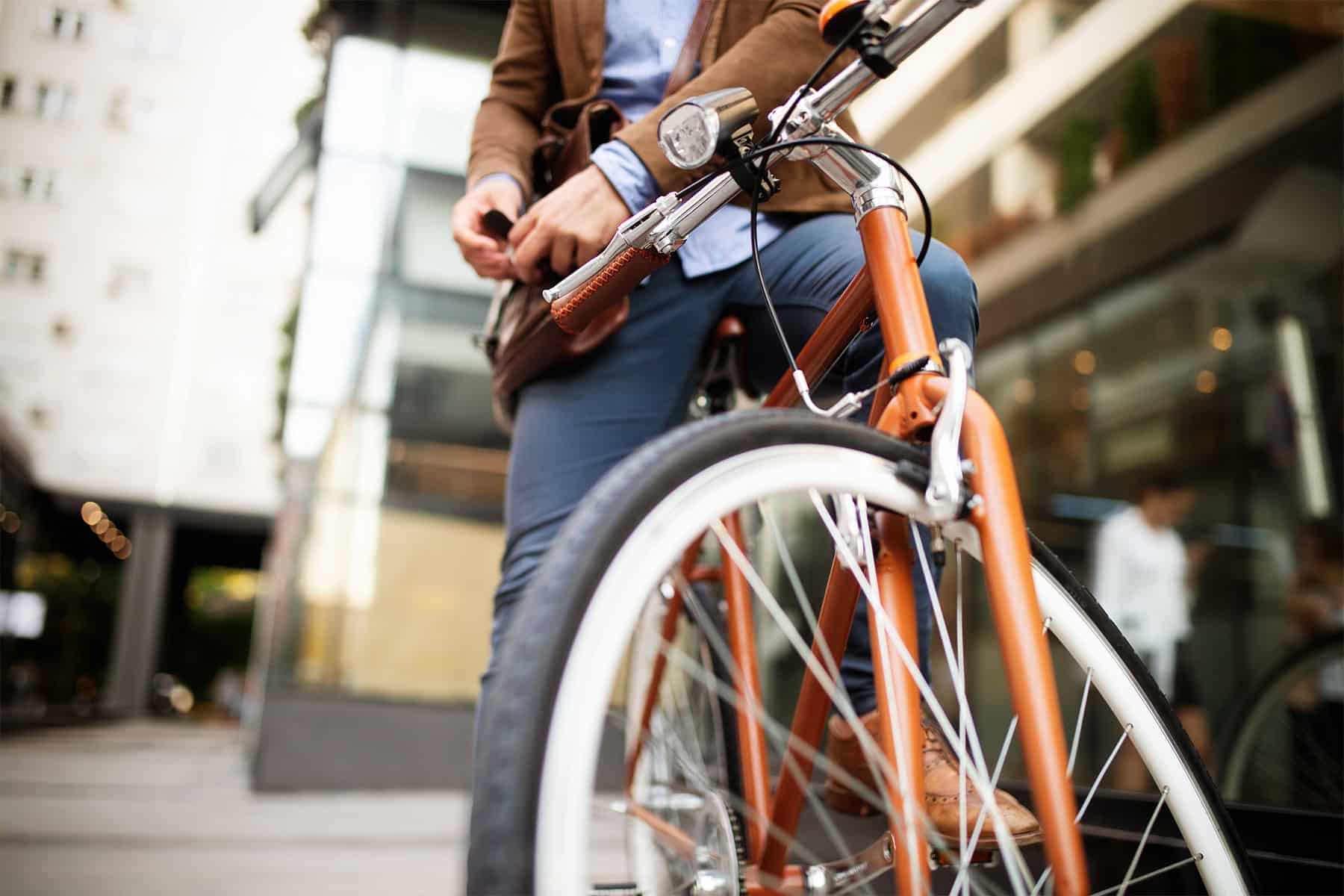Golf carts aren’t just for golf anymore.
While these vehicles may have been designed for cart paths and fairways, they’re an increasingly common sight on municipal streets, particularly in residential subdivisions, retirement communities, and other planned neighborhoods.
It’s not hard to understand why golf carts and similar “off-highway” vehicles have become so popular. They’re an affordable, comfortable, quiet, and environmentally friendly way to get around the neighborhood, or from your home to a nearby course.
Unfortunately, their open sides and relative lack of safety features can put occupants in danger, especially where carts share roadways with other motorists. In recent years, there’s been a significant increase in the number of golf cart injuries in Texas, and roughly half of them occur somewhere other than a golf course.
If you or a loved one have suffered a personal injury in a golf cart accident, connect with an experienced personal injury lawyer as soon as possible. You may be entitled to compensation.
RELATED: 5 Mistakes to Avoid After an Auto Accident
What Types of Injuries Are Associated with Golf Cart Accidents?
Most golf cart injuries result from either falling out of the cart or, after a more violent collision, being ejected from the vehicle.
Because golf carts and other small electric vehicles are not typically equipped with seatbelts, airbags, or other standard automotive safety features, even low-speed collisions or rollovers can sometimes lead to very serious injuries, or even wrongful death.
Common golf cart-related injuries include, but are not limited to:
- Whiplash: A sudden impact can cause your head and neck to whip back and forth. This can lead to symptoms including chronic pain, headaches, dizziness, and more.
- Other neck injuries and back injuries: Examples include herniated discs, slipped or fractured vertebrae, sprains, and strains.
- Traumatic brain injuries (TBIs): A violent impact can cause the brain to jostle inside the skull, resulting in a closed-head injury such as a concussion or brain bruise. Symptoms can range from headaches and hypersensitivity to light or sound to seizures, memory loss, depression, and more. Sometimes even “minor” accidents can result in TBIs with long-term effects, and symptoms might not appear for days, weeks, or even months after an accident.
- Soft tissue injuries: Soft tissues include muscles, tendons (which connect muscle to bone), and ligaments (which connect bones to one another). Common soft tissue injuries include sprains, strains, and ruptures. Surgery is sometimes required to repair a soft tissue that has been torn or has not fully healed despite conservative treatments.
- Skin wounds: Road rash, deep lacerations, and other skin wounds are common, especially if exposed skin comes into contact with pavement.
- Broken bones: Falling out or being ejected from a golf cart can break bones in the hands, wrists, legs, or other parts of your body. Fractures can range from relatively stable (i.e., the bone ends are still properly aligned despite being broken) to complex and open fractures.
RELATED: 4 Signs You May Have an Undiagnosed Traumatic Brain Injury
Are Golf Carts Street Legal in Texas?
Texas law allows golf carts to be driven on municipal streets under certain conditions:
- Individual master planned communities can approve golf carts for use on their own roadways, provided that the municipality or county in which they are located also approve.
- You can drive a golf cart on public roads outside the planned community, as long as:
- You are driving to or from a golf course during the daytime
- The posted speed limit is 35 miles per hour or less
- You are within two miles of where your cart is usually parked
- Certain cities or counties may authorize golf carts to be driven on public roads within the municipality or unincorporated areas, provided the speed limit is less than 35 miles per hour.
- The golf cart must have a license plate. These can be obtained for a $10 fee and never expire.
- The golf cart must have certain minimum safety equipment, including headlamps, tail lamps, reflectors, mirrors, and a parking brake.
- The golf cart must have a “slow moving vehicle” emblem prominently displayed if typically operated at speeds of less than 25 miles per hour.
Furthermore, just as with any other type of road vehicle, the operator of the golf cart must have a valid driver license to use it on public roadways.
What About Neighborhood Electric Vehicles (NEVs)?
Here in San Antonio, you may have noticed an increasing number of NEVs sharing the roadways with cars and trucks. These are small electric vehicles that are very similar to golf carts in size, speed, and sometimes even appearance.
The rules that govern NEV use are similar to those for golf carts in some respects. Just like golf carts, NEVs cannot be driven on roads where the speed limit exceeds 35 miles per hour. Individual municipalities and counties can also restrict or ban their use, although they are currently legal in San Antonio.
The biggest difference is that, while golf carts are designed primarily for use on golf courses, NEVs were meant to share the road. They must have standard safety features such as seat belts, a windshield, turn signals, head and taillights, brake lights, and reflectors. They also must be registered, titled, and insured like any other motor vehicle. However, even with these added safety features, riders and passengers may still be more susceptible to severe injuries than other kinds of motorists.
What Steps Should I Take After a Golf Cart Accident?
In the aftermath of any golf cart accident, you can help protect yourself and any legal case you have to compensation by taking a few important steps. As with any other type of car accident:
- Call 911. In Texas, you must report any accident resulting in injury (or property damage of more than $1,000). On top of this, a police report can be a crucial piece of evidence should you later make an insurance claim, so it’s always a good idea to get one even if you don’t think you’ve been seriously hurt.
- Collect your own evidence at the scene. If you can do so safely, you should gather as much info about the accident as you can. This includes taking photos of the scene, getting insurance information from anyone involved with the crash, and getting contact information from any witnesses.
- Seek immediate medical attention for any symptoms you’re experiencing. Even if you believe your injuries are minor, get checked out anyway, either at the emergency room, urgent care, or an appointment with your regular physician. If you wait too long to seek medical care, and your symptoms later worsen, the insurance company may try to argue that your injuries were not related to the crash. Proper evaluation and documentation form a medical professional can significantly strengthen your case.
- Contact an experienced golf cart accident attorney. An attorney can help you determine whether you have a legitimate personal injury claim—and if so, how much your claim may be worth.
RELATED: 5 Things to Discuss With Your Doctor After an Accident
How Is Liability Determined in a Golf Cart Accident?
Liability in a golf cart crash can depend on many factors. Based on your crash’s unique circumstances, you might have legal claims against a driver, owner, or the cart’s manufacturer.
Is a Driver Responsible for Their Reckless Behavior?
In Texas, a negligent or reckless driver is financially responsible for the injuries or losses they cause. A driver of a cart may be liable if they were operating it in an unsafe manner. Due to their low speeds, many people may feel a false sense of security when driving a golf cart, which causes them to behave more recklessly. Speeding, taking sharp turns, and operating while intoxicated are common factors in these types of golf cart accidents.
If the cart was being driven recklessly by a minor without a driver license, a parent or guardian may be held at fault.
Motor vehicles can also cause on-the-road golf cart crashes. In these cases, a golf cart’s passengers can suffer catastrophic injuries, especially if the car or truck was moving at a high speed.
However, a collision involving two cars or trucks, insurance coverage can get complicated in a golf cart crash.
- A motor vehicle caused the crash. If the at-fault driver was operating a motor vehicle (like a passenger car or truck), you should file a personal injury claim with their auto insurance company. All motor vehicles must carry a minimum amount of car insurance in Texas.
- A golf cart driver was at fault. Unfortunately, most auto insurance policies do not cover golf carts. You will need to determine whether the owner or operator of the cart had golf cart insurance or a homeowner’s policy that covers the vehicle.
Your personal injury attorney will help you identify every insurance policy that covers your injuries—with the goal of getting you fair compensation.
What If the Accident Was on a Golf Course?
Although many cart accidents on golf courses are the result of operator error, the owner of the course may be held responsible if the conditions of either the course or its carts are judged to be unsafe.
Owners of private property that are accessible to the public have a responsibility to meet certain safety standards. If your golf cart crash was the result of something like:
- An improperly paved cart path
- Dangerous terrain
- A poorly maintained cart (e.g., malfunctioning parking brake)
- Any other hazard that the course operators would be expected to either fix or warn golfers about, they may be held at fault.
These claims are known as premises liability cases.
What if the Accident Was on the Road?
As mentioned above, golf cart accidents on the roadway are especially dangerous. Accidents that might otherwise be minor “fender benders” when they involve only cars or trucks could prove much more damaging, or even fatal, if one of the vehicles is a golf cart, ATV, UTV, or other “off-highway” vehicle.
As with any other type of roadway incident, drivers are responsible for following the rules of the road, paying attention, and driving in a safe manner. If a car or truck struck your golf cart while you were legally and safely operating it, the driver of the other vehicle may well be held at fault.
What About the Golf Cart Manufacturer?
In some cases, the company that built the golf cart may be considered responsible if certain design flaws or manufacturing defects contributed to the crash or to the severity of the injuries.
RELATED: Texas Defective Product Lawyers—Crosley Law
If You’ve Been Injured in a Golf Cart Accident in Texas, Call Crosley Law for a Free Consultation Today
Our law firm specializes in all aspects of personal injury and wrongful death law. We help accident victims learn their legal rights, understand what their case may be worth, and help them every step of the way.
If you’ve been hurt while driving or riding in a golf cart for reasons that aren’t your fault, schedule a free case evaluation and talk to one of our personal injury lawyers today. You can reach our San Antonio law offices at 210-529-3000 or by sending us a message online.
The content provided here is for informational purposes only and should not be construed as legal advice on any subject.









